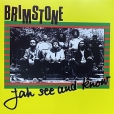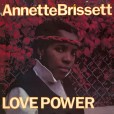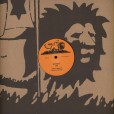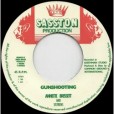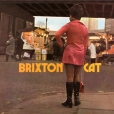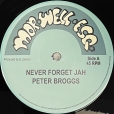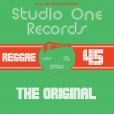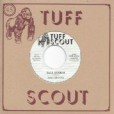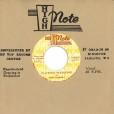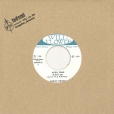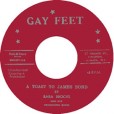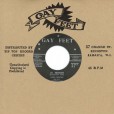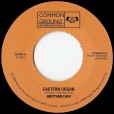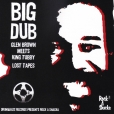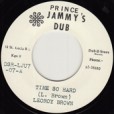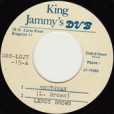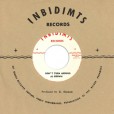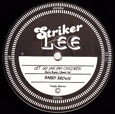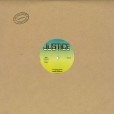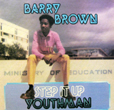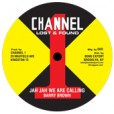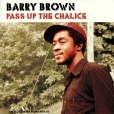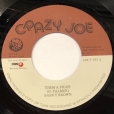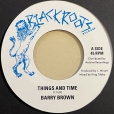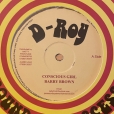Your basket is empty

Half price.
Originally out in 1983, Love Power is co-produced by Fabian Cooke (from Itopia) and Lloyd Bullwackie Barnes, with assistance from Prince Douglas. Cooke plays most of the instruments himself, with his drumming centre-stage, though Ras Menelik puts in a brilliant shift on congas, and backing vocals are by Sugar Minott and the Love Joys. Cooke’s own well-crafted compositions are joined by covers of Irene Cara and the Four Tops, infectiously bridging roots, lovers and synthy, soulful eighties boogie.
Betrayed is solid-gold, signature Wackies. He’s My God is a tasty sip of low-slung, grooving gospel-reggae. Evoking Michael Jackson, the jamming album-closer Drums is top-notch disco-reggae, opportunely poised for revival.
Terrific stuff. Transgressive; full of personality and charm.
Deep, rootical lovers, darkly seething with one-step-at-a-time hurt and steely, vengeful self-esteem. Hypnotic, stripped and disconsolate, with implacable drums and bass, dubwise from the start, the production is classic, unmistakable Wackies, featuring Fabian Cooke’s scattered, abrupt organ stabs and minimal guitar-work, Ras Menelik’s masterful nyabinghi drumming, and harmonic commiseration by Sugar Minott and the Love Joys (with a strangled sob at intervals).
Over six minutes, the extended mix is different to the Love Power LP; and the additional dub, released here for the first time, is unmissable for its extra rawness and dubbed-out emptiness.
Plus thirteen minutes of blissful disco-reggae on the flip: two contrasting dubs of the Giorgio Moroder/Irene Cara/Flashdance cut from Love Power, both previously unreleased and a bit sick.
Cedric was a jazz nut. Enrolled at Alpha Boys aged eight, he was soon revelling in Ruben Delgado’s new jazz course. He flourished under Lennie Hibbert’s directorship, before setting out in the early sixties with Sonny Bradshaw’s big band, followed by a residency with Leslie Butler and Hedley Jones playing jazz at Club 35 in Montego Bay; then stints with the bands of Granville Williams, Cecil Lloyd and Teddy Greaves. “Kind of easy listening jazz, mixed with some of the regular pop stuff, for dancing.”
Amazingly, by the end of the decade Cedric was living in Philadelphia, on the verge of moving in with the Arkestra. He jammed up in the hills with Count Ossie, at Rockfort; and towards the end of his life, he jammed on the New York subway. Sonny Rollins was his main man. Have another listen to him on Door Peep Shall Not Enter.
It’s all magnificently expressed in these two highlights of the Africa Calling LP, recorded at Treasure Isle with Errol Brown for producer Sonia Pottinger in 1977.
Expertly explosive brass arrangements and brilliant soloing, electric keys and wah wah guitar gently counterposed to nyabinghi group-drumming; with uncontrived spirituality, nothing easy or halfway-house.
Bim.
A knockout, proto-Pablo, rocksteady organ instrumental. Dandy Livingstone, surprisingly enough, riding east of the River Nile. Originally out on Trojan in 1968.
‘Glen Brown Meets King Tubby.’
Authentic, raw, unheard dubs of almighty murder like Merry Up, Forward The Good, Long Live Zion, Never Too Young To Learn, and the timely We All Have The Right To Live.
Brutally magnificent music. Crucial bunny.
Top-notch digi sufferers from 1987. Plenty of Dennis in Leroy’s singing.
Shades of Brown. Leroy B sounds like Dennis B, over Glen B’s immortal Wicked Can’t Run Away rhythm. Typically expert digi do-over by KJ, with an ace dub.
Creativeness pon the dance.
Crucial Tubbys dubplate pressure.
Super-heavyweight Aggrovators roots. Barry Brown at his very best; deadly, sombre horns; lethal Tubbys dub. Scorcher.
The African Brothers in full effect. Barry Brown does anthemic justice to this killer song, written by Tony Tuff; produced by Sugar Minott. The reasoning is bang on the money, over a lovely rhythm. The deadly dub is by Scientist, at Tubby’s. It’s a must.
